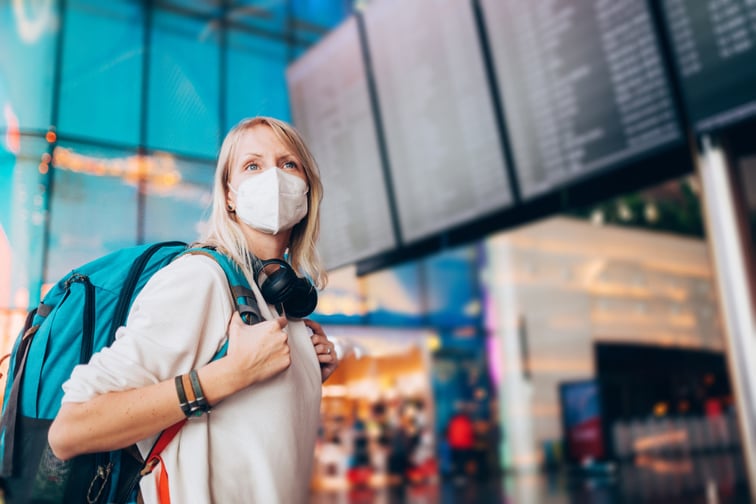

With the persistence of the COVID-19 pandemic, three in four Australians have become more concerned about their health and safety when travelling in the next two years than they were before the COVID-19 pandemic started, according to new research commissioned by Southern Cross Travel Insurance (SCTI).
The research investigated Australian travel behaviours following the pandemic, highlighting how post-pandemic travel concerns are shaping Australians' decisions, including destination considerations, accommodation choices, holiday activities, and perception towards risk and travel insurance.
Among the 92% of Australians planning to travel within Australia or overseas over the next two years, 75% were more concerned about health and safety when travelling, 89% claimed a destination's COVID-19 record will impact their decision to travel there, 80% considered travel insurance a high priority for international travel, and 65% saw domestic travel insurance a high priority.
“COVID-19 has impacted the way we approach travel, including our method of planning our holidays. It has made us more aware now than ever of the things that could potentially go wrong during our travels and the importance of planning for these unforeseen circumstances as much as we can,” said SCTI CEO Jo McCauley. “This is becoming particularly evident in our business. We're seeing a real shift in perception around the importance of travel insurance among our customers. Prior to the pandemic, travel insurance used to be something some of our customers would purchase at the last minute with limited understanding of what they were and weren't covered.”
SCTI found a difference in travel perceptions between the younger and older generations. For example, only one in three (33%) of 18 to 24-year-olds claimed to be more concerned about health and safety when booking a trip, and two-thirds (64%) said a destination's COVID-19 record will not play a major role in their decision to travel there. They are also less likely to take the same precautions as older generations, with one in three (36%) not considering travel insurance a high priority for international travel.
“The research does reveal some fascinating generational differences. Specifically, the younger generation's more relaxed approach to travel, which differs significantly from older generations. This age group [is] most likely to take the opportunity to travel now that international borders are beginning to open across the world,” McCauley said. “However, what is slightly concerning is that the data does indicate that this age group may not be taking the same precautions as older generations when planning a holiday, therefore leaving them more exposed to increased risk of harm or costly mistakes here and overseas.”
SCTI urges travellers – regardless of age and health – to take out travel insurance because “you never know what might happen, and it's better to be prepared than to be left feeling regretful and with a huge bill to pay.”
